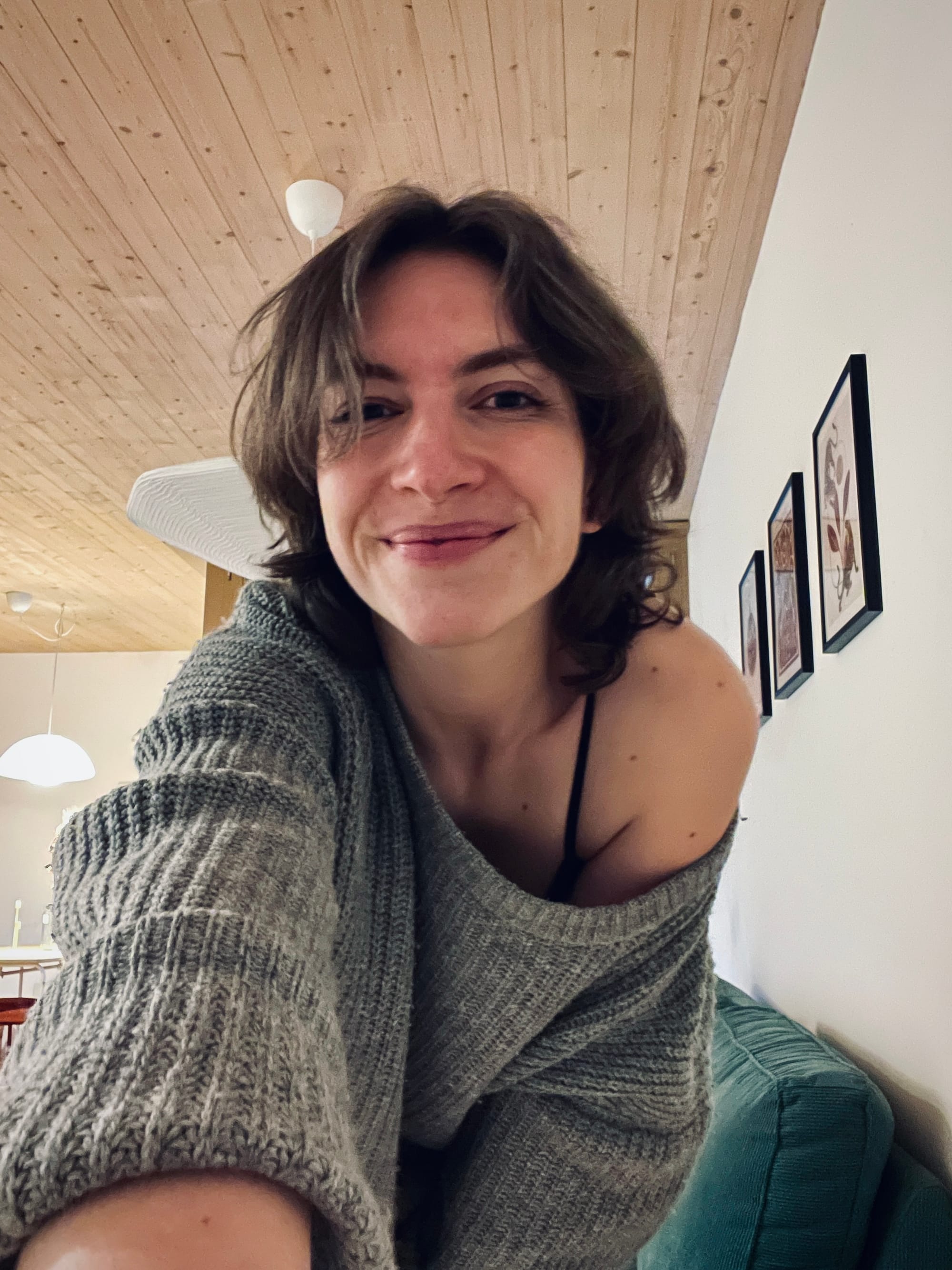When You No Longer Fit Your Own Story

What happens when the version of ourselves we once loved no longer fits? This post explores identity, grief, and how to make peace with change.
Change can be thrilling—and disorienting. In the midst of excitement, uncertainty, rainstorms, and sunbursts, we often forget this:
We’re allowed to grieve the parts of ourselves we’ve outgrown.
The Identity I Built Abroad
At 18, I moved to the Netherlands as an Au Pair, determined to learn Dutch and pursue my dream of studying Psychology. My grades hadn’t been high enough for university in Germany, but in the Netherlands, the door was open. I stepped through it—and ended up staying nearly eight years.
In many ways, I grew up there. I arrived fragile, curious, and wide-eyed. Within months, I spoke fluent Dutch, dated a Dutch guy, worked as a tour guide at the Grolsch brewery, and found myself immersed in a culture that quickly felt like home.
When I eventually returned to Germany, even my accent confused people. "Die Holländerin ist wieder da," my father would joke. And honestly? I was proud of being “the Dutch one.” It gave me something to point to—something that made me feel unique. A quiet badge of difference.
It’s humbling to admit how deeply that identity—the interesting one who lives abroad—had woven itself into my personality. Speaking another language, building a life from scratch… it made me feel accomplished. Magnetic. Special.
But when I moved back to Germany, something in me went quiet. The compliments stopped. The story that once opened every conversation no longer applied. One of the defining features of my life had slipped away.
And while I’ve never seen anything wrong with living in your hometown—many of the people I love have built meaningful lives close to where they started—it felt different for me. Because I hadn’t realized how much of my self-worth had become tangled up in doing something different. Something that, for me, felt like proof I was becoming someone.
Maybe you’ve had a badge like that too, some quiet proof of your own becoming. And maybe you’ve had to set it down.
And my ego? Oh, it hated that.
What Is Identity, Really?
Looking back, I can see how that identity had become a kind of armor. It wasn’t just a story I told—it was something I performed, and something I felt I had to protect. When I let it go, I felt exposed. And I didn’t yet know who I was without it.
It’s awkward to admit how much we can cling to the roles we play. How comfortable we become in identities that feel both authentic and performative.
But it’s also human.
We crave structure. We long to know who we are. Whether it’s “the expat,” “the curly girl,” “the overachiever,” or “the one who always has a plan”—identity gives us shape. It becomes the scaffolding we build our lives around.
So when a chapter closes, even one we chose to end, we may find ourselves disoriented. Not because we regret the decision, but because we no longer know which version of ourselves to be.
This isn’t unique to me. Loss of identity can take many forms: a carpenter who injures his back and can’t work. A parent whose children have grown. A musician who loses their voice.
Or simply, someone who moves home—and suddenly doesn’t know how to answer the question, “So, what’s new with you?”
I didn’t have the language for it back then. I just felt... off. Like something invisible but essential had gone missing. But later, I came across a psychological concept that helped me understand what was really happening.
Narrative Identity Theory
Narrative Identity Theory, proposed by psychologist Dan McAdams, suggests that we understand and define ourselves through the stories we construct about our lives. We’re not just who we are, we’re who we say we are. Our memories, values, and experiences are woven into a coherent narrative that gives our life meaning.
So when a major chapter ends—like moving back home, losing a relationship, or changing careers—it’s not just an external shift. It’s a disruption in the story of who we believed ourselves to be. The identity I had while living abroad was part of that narrative. When it ended, it left a void.
Understanding this helped me see that what I was feeling wasn’t weakness. It was grief. Not just for a place, but for the version of myself who had once belonged there.
The Grief of Letting Go
It took me longer than I’d like to admit to realize I was grieving—not just my Dutch life, but the imagined future that came with it.
To be honest, I had planned to marry my ex. I pictured a bilingual family. A dual passport. A happy life in a place that once felt like home.
That version of the future is gone now. And I’ve changed, quietly, but deeply.
But the loss still lingered. I found myself constantly retelling stories about “when I lived in the Netherlands,” as if holding on would keep it alive. Maybe I hoped that if I spoke about her enough, she'd still exist, that version of me who once knew exactly who she was.
Eventually, I had to let her go—that Dutch girl. That younger version of me.
Saying Goodbye with Compassion
In The Places That Scare You, Buddhist teacher Pema Chödrön reminds us that confusion is not something to escape, but a crucial moment to recognize our own pain—a moment of waking up. A moment to meet ourselves with compassion instead of judgment.
Sometimes I listen to her audiobooks, just to let her calm voice wash over me. Something in her words helps me soften toward myself.
Her teachings are supported by research in self-compassion and emotional regulation. Psychologists around the world have found that speaking kindly to ourselves can reduce shame, build resilience, and help us reconnect with a more grounded sense of self.
As someone who believes deeply in the power of journaling and the stories we tell ourselves, I decided to take it one step further.
One cloudy day, I went into my room, closed the door, and wrote a letter to a former version of myself—the Dutch girl I knew I needed to let go of.
It felt awkward at first. But within minutes, the words came pouring out. Unplanned. Honest. And when I finished writing, I knew I needed something more. A ritual. A closing ceremony to mark the end of a chapter and make room for the next.
So I got up and walked to the mirror.
I looked myself straight in the eyes. I didn’t look away.
Bravely.
And within seconds, the emotion rose. My eyes filled with tears, but I kept looking.
Then, softly, I began to speak the words I had written:
“You did such a good job. You made something beautiful in a place that was new and exciting. You learned, you loved, you adapted. And now, you—young version of me—get to rest. I’ll carry what matters, but I don’t need to keep pretending I still live there.”
I breathed in and out. Slowly. Letting the moment wash through me.
And when the tears dried, I felt something shift—a quiet space where grief had been, now open for something new.

What Comes After the Grief
I didn’t become someone new overnight. But the space that grief carved out didn’t stay empty.
There’s something oddly stabilizing about letting go. About not needing to carry an old version of yourself into every conversation, every room, every future plan.
Because after grief, what remains is clarity.
And clarity has brought me so much: a new, deeper romantic relationship, a renewed sense of purpose, the quiet joy of writing again, and a steadier trust in who I’m becoming.
For You, If You’re in Between
Maybe you’ve lost a version of yourself too. Maybe it’s something small, like how you used to dress. Or something bigger, like the future you once imagined.
Whatever it is—you’re allowed to grieve it. To cry. To feel strange. To not know who you are yet.
Let the sadness come. Let the space open. And slowly, softly, trust that something new will take root.
You’re not behind. You’re becoming.
And I can’t wait to meet the version of you that emerges.
The one who no longer fits the old story—but is writing a new one.
If you’ve ever had to let go of a version of yourself, I’d be honored to hear it in the comments. Or share this with someone who might need to feel less alone today. 🩵




Comments ()